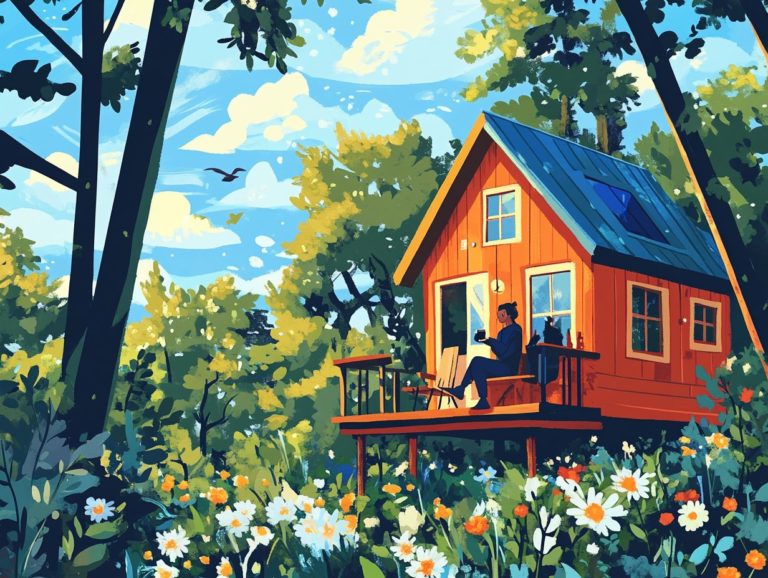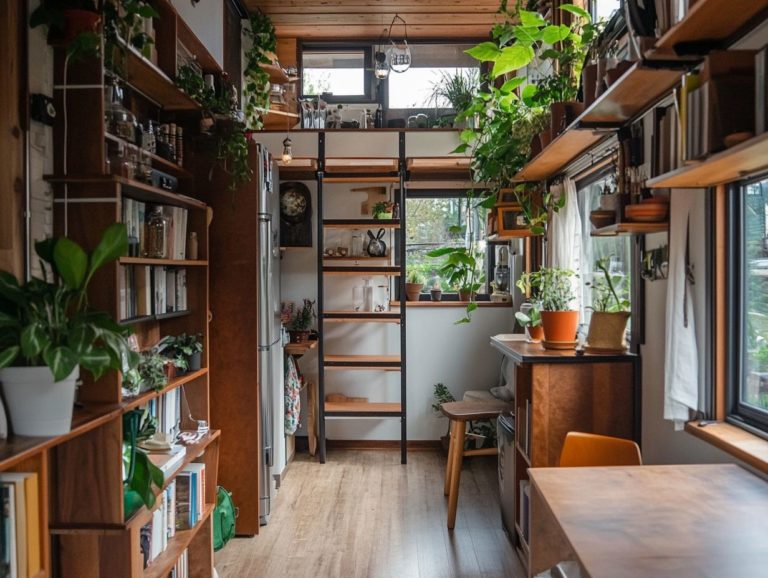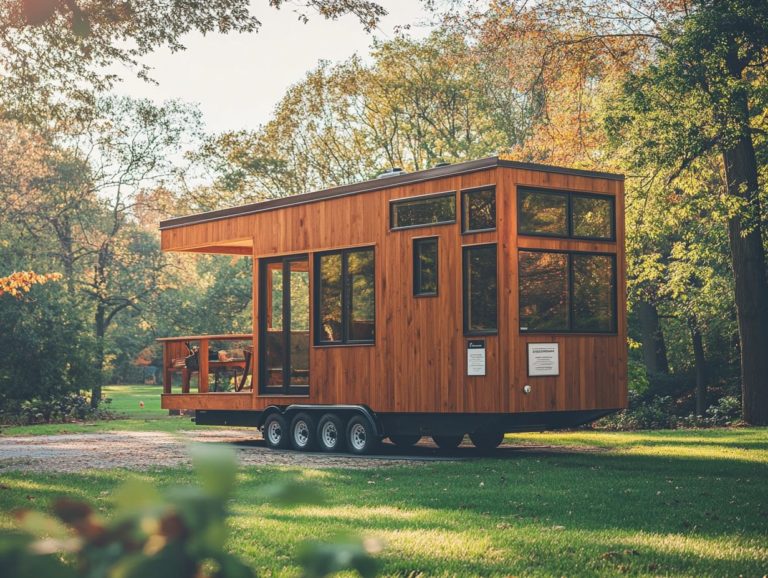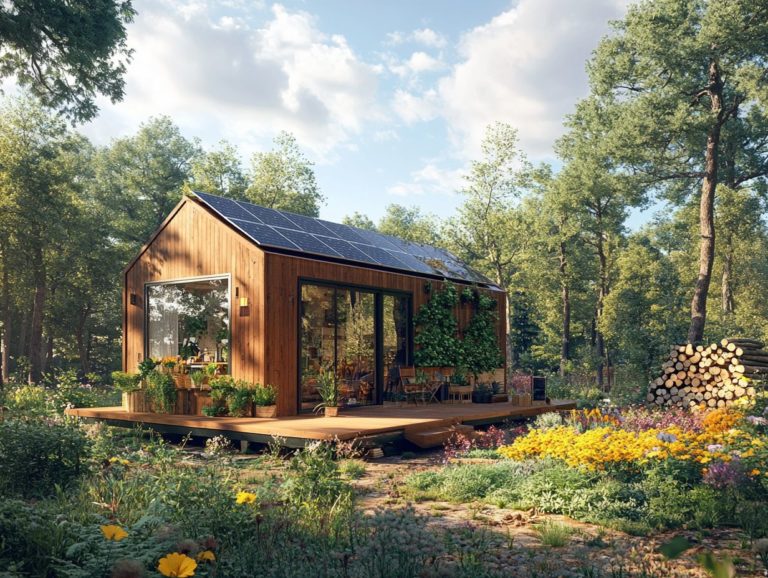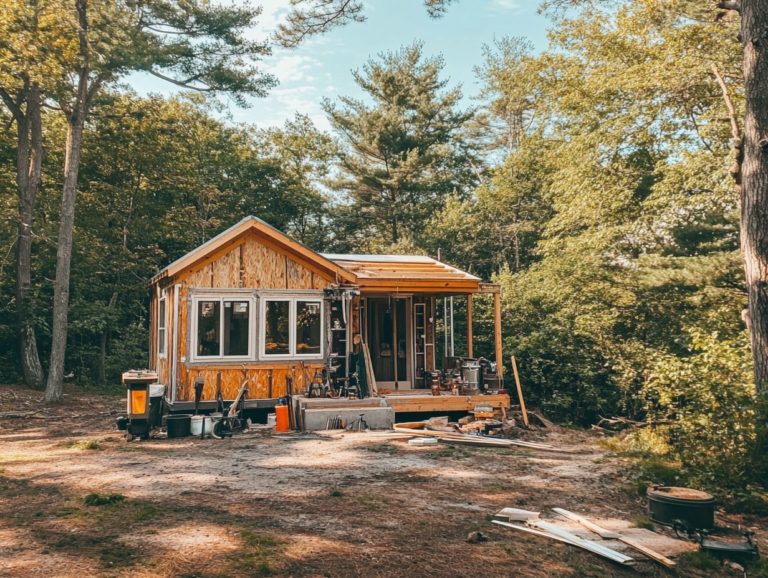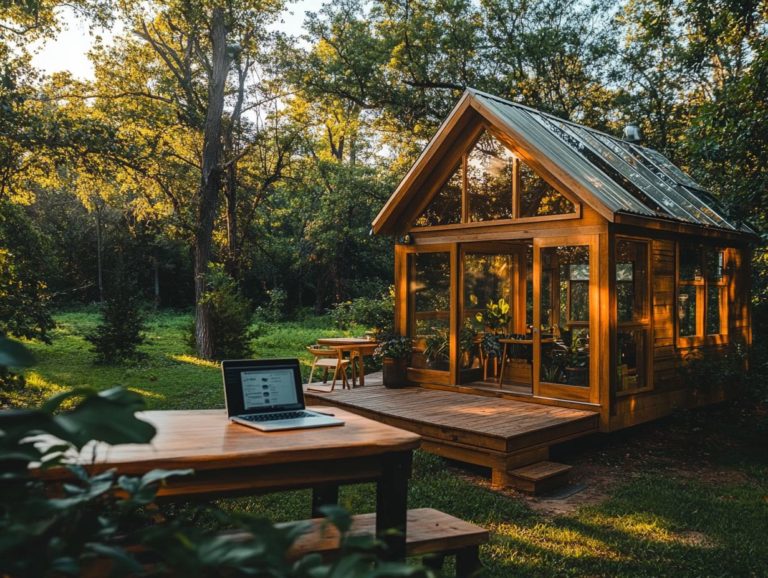How to Build a Tiny House with Kids?
Building a tiny house with your kids transcends mere project status; it becomes an adventure that nurtures creativity, teamwork, and essential life skills.
As you embark on this journey, planning and designing your tiny home together transforms the experience into a meaningful family bonding opportunity. Involving your little ones in the design process and gathering materials will not only be rewarding but also filled with practical tips and insights. You will also discover ways to personalize and maintain your tiny house, ensuring it evolves into a cozy haven for the entire family. Get ready for an amazing adventure!
Contents [hide]
- Key Takeaways:
- Benefits and Challenges
- Planning and Designing the Tiny House
- Gathering Materials and Tools
- Building the Tiny House with Kids
- Finishing Touches and Customizations
- Maintaining and Living in a Tiny House with Kids
- Frequently Asked Questions
- What are the benefits of building a tiny house with kids?
- Is it safe to build a tiny house with kids?
- How do I get my kids involved in the building process?
- What are some challenges of building a tiny house with kids?
- How can I incorporate my kids’ interests and hobbies into the design of the tiny house?
- What are some tips for making the building process fun for kids?
Key Takeaways:
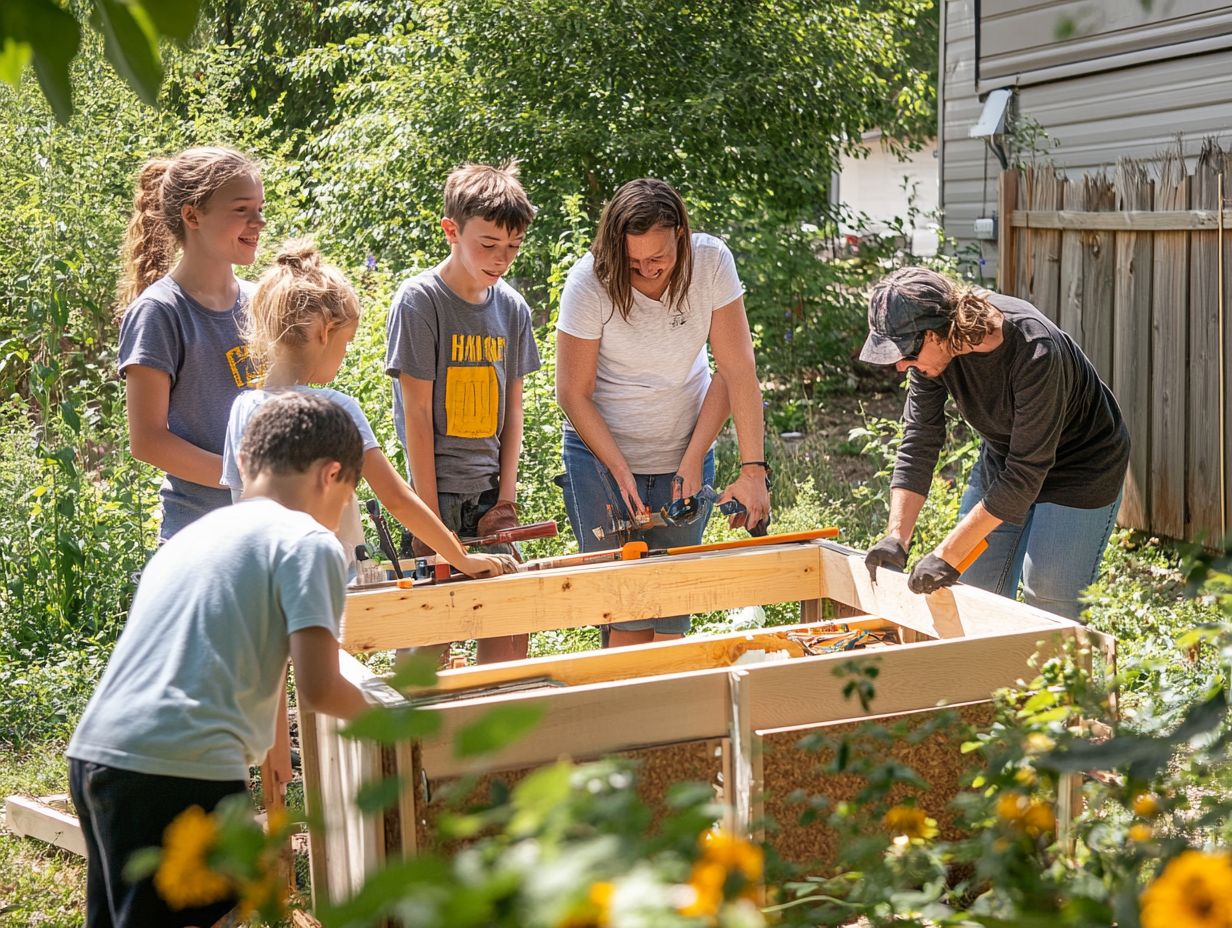
- Involve kids in the planning and design process to make them feel included and excited about the project.
- Set a realistic budget and source materials creatively to keep costs down while still creating a functional and comfortable tiny house.
- Embrace the challenges and enjoy the benefits of building and living in a tiny house with kids, while involving them in personalizing and maintaining the space for a rewarding family experience.
Benefits and Challenges
Living in a tiny house with kids presents a unique blend of remarkable benefits and notable challenges that can profoundly influence family dynamics and individual experiences.
The financial savings often afforded by this lifestyle promote a more sustainable way of living and build stronger family bonds by sharing your space. The tiny house movement has resonated with families yearning for simplicity and togetherness.
However, it also introduces spatial constraints that require innovative storage solutions and thoughtful planning to enhance functionality while respecting everyone s need for privacy.
Planning and Designing the Tiny House
Effective planning and designing a tiny house is essential for families like yours, ensuring the space caters to your unique needs and aspirations.
This process requires the integration of smart design ideas and dual-purpose furniture, which refers to furniture that serves more than one function, like a sofa bed. This provides functionality without compromising on comfort.
Cultivate a living environment that inspires creativity while also tackling the everyday challenges of raising kids especially when it comes to organization and optimizing every inch of available space.
Involving Kids in the Process
Involving your kids in the process of building a tiny house nurtures their creativity and strengthens family bonding through shared experiences. Allowing them to contribute their ideas and preferences helps create spaces that reflect the unique personalities and interests of every family member. This collaborative effort can lead to better organization and functionality in your home.
Engaging them in decisions like selecting wall colors or designing layouts ignites a sense of ownership and pride in their living environment. Tasks such as brainstorming innovative storage solutions encourage teamwork and problem-solving skills, fostering a sense of responsibility. This hands-on involvement helps your children feel valued and heard, ultimately enhancing communication within the family.
When kids participate in shaping their home, they learn the importance of collaboration and compromise—essential life skills that extend far beyond the tiny house and into their everyday interactions. For inspiration, consider exploring tiny house design ideas for families with kids.
Gathering Materials and Tools
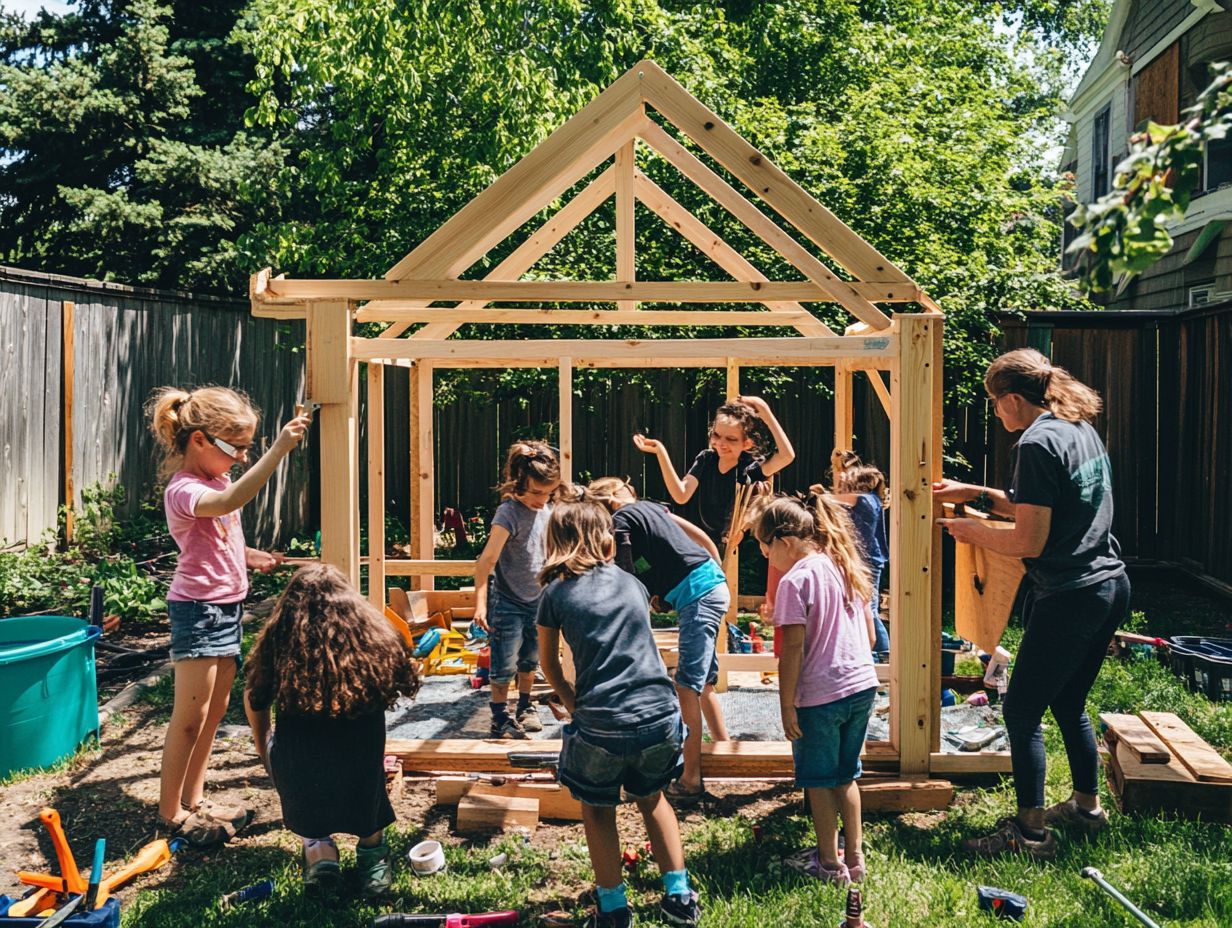
Gathering the right materials and tools is crucial in the construction of a tiny house, especially for families who value eco-friendly habits and sustainable living. This process requires effective budgeting to maintain financial stability while sourcing high-quality materials that resonate with your values and design preferences.
By planning ahead, you can secure the necessary supplies and tools while minimizing waste and clutter in your living space.
Start planning your tiny house adventure with your kids today!
Budgeting and Sourcing Materials
Budgeting and sourcing materials for your tiny house can lead to significant financial savings, especially when you take a strategic approach to your construction plans. By thoroughly researching various sources and choosing smart storage ideas, you can optimize your budget while selecting materials that fit your design aspirations and lifestyle needs.
Conduct a thorough price comparison across different suppliers to identify the best deals. Don’t overlook second-hand options; they often offer quality materials at a fraction of the cost. Local marketplaces and online platforms can lead to great finds that elevate your project without breaking the bank.
Embrace creative storage solutions, like built-in furniture and areas that serve more than one purpose. This maximizes the limited square footage of your tiny house and ensures that every inch counts. This holistic approach streamlines your construction process and fosters a more sustainable living environment that you can truly enjoy.
Building the Tiny House with Kids
Building a tiny house with your kids can be an enriching adventure that nurtures teamwork and practical skills. It transforms the entire process into an educational journey for your family.
By following a step-by-step guide, you ll navigate the intricacies of construction while instilling essential values like communication, respect, and the importance of spending quality time together.
This collaborative approach elevates the building experience and creates lasting memories that you will all cherish.
Your Fun Guide to Building a Tiny House Together!
A step-by-step guide to constructing a tiny house enables you and your family to tackle the challenges while fostering creativity and collaboration among everyone involved. By following organized steps from planning to execution you can keep the building process focused and engaging, allowing each family member to contribute their unique ideas and skills.
Your journey begins with brainstorming. Here, everyone can voice their vision and preferences, leading to a cohesive design that reflects collective input. Establishing a clear timeline with specific milestones promotes efficiency and maintains high momentum, transforming the process into an achievable goal instead of an overwhelming task.
Regular meetings can be invaluable for reviewing progress and adapting as needed. This ensures that every voice is heard. By assigning specific tasks based on individual strengths, you can enhance participation and turn the project into a shared adventure that strengthens family bonds while cultivating creativity and resourcefulness.
Finishing Touches and Customizations
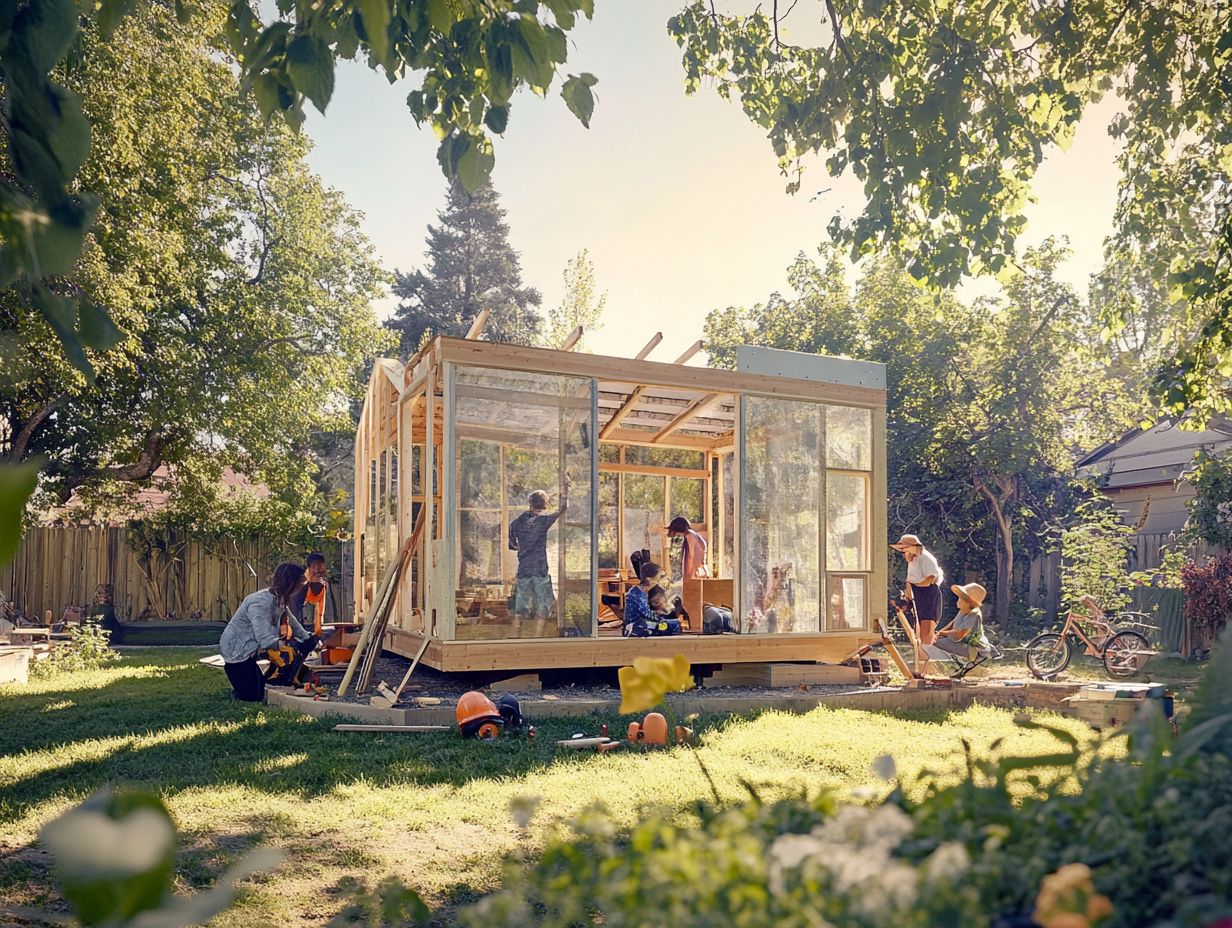
The finishing touches and customizations of a tiny house are essential for crafting a living space that truly embodies your family’s unique experiences and values.
Engage in thoughtful planning to weave personal elements into your home. This transforms it into a sanctuary that harmonizes functionality with aesthetics.
This approach enhances the beauty of your tiny house and fosters family bonding, creating lasting shared memories.
Personalizing the Tiny House with Kids
Personalizing a tiny house with kids can be a delightful journey that enriches family bonding and sparks creativity. Involve your children in selecting decorations, themes, and organizational layouts to create a living space that reflects your family’s collective identity.
Engaging your kids in DIY projects, like crafting custom wall art or designing personalized cushions, allows them to express their creativity. This hands-on approach teaches them valuable skills and ignites a sense of pride as they see their contributions woven into daily life.
Let them choose artwork or color themes for their personal spaces, enabling them to express their individuality. These collaborative efforts beautify the home and serve as emotional anchors, deepening familial ties as each member feels heard and valued in the shared living environment.
Start your tiny house adventure today!
Maintaining and Living in a Tiny House with Kids
Living in a tiny house with kids calls for intentional strategies and practical tips to cultivate an organized, functional, and harmonious space. You ll need to navigate the complexities of daily routines. You must also tackle the unique challenges of limited space.
Effective organization and open communication among family members are essential tools to help you thrive in this close-knit environment.
Practical Tips and Advice
Implementing practical tips and advice for living in a tiny house can significantly enhance your experience, promoting harmony and deepening family bonds. Simple organizational strategies, such as opting for furniture that serves more than one function and innovative storage solutions, helps keep the clutter at bay while ensuring that everyone enjoys their personal space.
By thoughtfully designing shared areas, you can cultivate an atmosphere that encourages togetherness without feeling cramped. For insights on maximizing space, check out how to design a tiny house for family living. Establishing daily routines like scheduled family meals or designated playtimes helps maintain a sense of order within those cozy square feet.
Invest in furniture that can be easily moved around, allowing you to adapt your home for various activities, whether it’s a movie night or an intense study session. Incorporating vertical storage options maximizes your floor space, giving children ample room to explore while keeping toys and books neatly tucked away.
These intentional strategies create a seamless blend of functionality and comfort, transforming your tiny living experience into an exciting journey for everyone involved.
Frequently Asked Questions
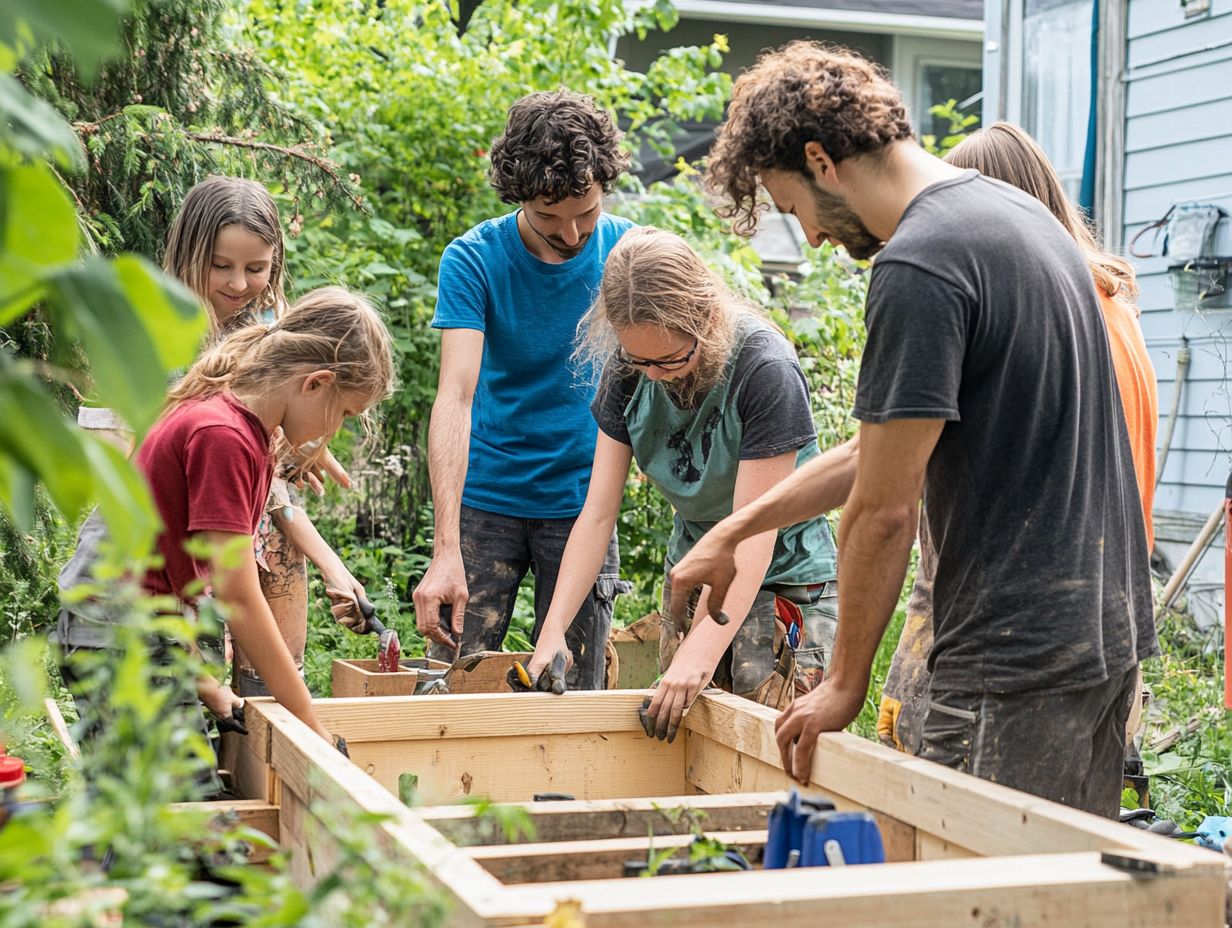
What are the benefits of building a tiny house with kids?
Building a tiny house with kids can provide a unique learning experience, promoting teamwork and creativity. It also teaches them the value of organization and living sustainably.
Is it safe to build a tiny house with kids?
Yes, but adult supervision and safety precautions are necessary. Make sure to use child-friendly tools and materials and involve them in age-appropriate tasks.
How do I get my kids involved in the building process?
One way is to let them take charge of choosing the design and layout of their own space in the tiny house. You can also assign them tasks such as painting, decorating, or assembling furniture.
What are some challenges of building a tiny house with kids?
Scheduling can be a challenge as kids have school and other activities to attend. Limited space can also be an issue, but it can be a great opportunity to teach them about minimalism and organization.
How can I incorporate my kids’ interests and hobbies into the design of the tiny house?
You can create a designated area for their hobbies, such as a small reading nook, a craft corner, or a space for playing instruments. You can also let them choose the color and theme of their room.
What are some tips for making the building process fun for kids?
Make it a family project and involve them in decision-making. Take breaks and have fun activities like a picnic or camping trip during the building process. Also, allow them to personalize their own space in the tiny house.
We d love to hear about your experiences with tiny house living! Share your stories or ask us more questions.

